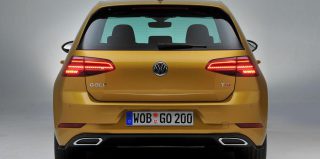www.uppermichiganssource.com After Ishpeming’s Labor Day parade, union members and community members gathered at the Lake Bancroft Park for a picnic, family entertainment and a beer tent, manned by Senator Scott Dianda and two Democrat candidates. To learn more about donating to the ease efforts, click here.
China Billionaire Adds Proton, Lotus to Expanding Car Empire
Lotus Cars could finish Li’s ambition to create a portfolio of international brands at different price points.
Photographer: Andrew Harrer/Bloomberg
Chinese billionaire Li Shufu is buying Malaysia’s unprofitable national carmaker Proton Holdings Bhd. pretty much for two reasons: access to six hundred million consumers in Southeast Asia and the brand cachet of Lotus Cars.
Li’s Zhejiang Geely Holding Group, which also wields the upscale Sweden-based Volvo Cars, announced Wednesday that it will buy 49.9 percent of Proton and a fifty one percent stake in Lotus Cars. The two parties are still in talks about transaction price for the stake in Proton, Syed Faisal Albar, group managing director of DRB-Hicom Bhd., which is selling the stake, said.
By investing in the Malaysian auto group, Li is betting he’ll build up an inroad into Southeast Asia, a region with an expanding middle class that the Chinese government is also investing in as part of its “Belt and Road” infrastructure development initiative.
Lotus Cars could finish Li’s ambition to create a portfolio of international brands at different price points. For Geely, Lotus would be a prestigious addition, “like Volkswagen has Porsche and Toyota has its Lexus,” according to Tian Yongqiu, an independent auto consultant who tracks Chinese carmaker acquisitions.
Under Proton, the British marque lacked the scale or investment needed to make it into a global sports brand, something that could switch as part of a broader Volvo-Geely group.
“Geely has almost finished the puzzle for the global market: It has presence in Europe through Volvo, which can also go to the U.S. It must pack in the blank by cracking into Southeast Asia, which is predominated by Japanese petite cars,” Tian said. “It’s hard for Geely to break into this market on its own. But with Proton’s factory and massive network, it can be a brief cut.”
Light Touch
Li commenced out making refrigerator parts and turned a bankrupt state-owned manufacturer into China’s thickest privately possessed carmaker. He cemented his reputation as a savvy dealmaker after he revived Volvo Cars in the face of widespread industry skepticism following its acquisition from Ford Motor Co. in 2010.
Li Shufu with Lewis Booth, then CFO at Ford, at Volvo headquarters in March 2010.
He managed the Gothenburg-based carmaker with a light touch and gave its vaunted engineering team the resources to invest in fresh models. At the same time, he lowered the Swedish manufacturer’s high costs by jointly developing vehicle underpinnings with Geely, while building a plant in lower-cost China for exports to markets including the U.S.
Investors have sent shares of Hong Kong-traded unit Geely Automobile Holdings Ltd. up fifty eight percent this year, striking out Internet stalwart Tencent Holdings Ltd. as the best-performing stock on the Drape Seng Index. The 53-year-old has a net worth of about $Four.8 billion, according to the Bloomberg Billionaires Index.
Producing and selling Geely-branded cars in Malaysia will create a fresh income stream for the Hong Kong-traded unit, said Gui Shengyue, chief executive officer of Geely Automobile Holdings. “There are no sports car models under Geely and Volvo, so Lotus will help beef up Geely Group’s presence in the segment.”
Proton has two factories, including an underutilized plant in Tanjung Malim in Malaysia capable of making 150,000 vehicles a year that Geely could use to make its low-cost cars. Proton also has a ready-made sales network in Malaysia that Geely could use to sell its cars.
Operations at Proton’s plant in Tanjung Malim.
Malaysia will permit Geely to develop its right-hand-drive models, and potentially bring in Volvo Cars as incomes rise in the country, said Tian, who estimates the country’s car ownership rates are about a fifth that of China’s and as much as forty times less than the U.S.
Still, there’s a major difference inbetween buying Volvo Cars and Proton, said Michael Dunne, president of Hong Kong-based consultancy Dunne Automotive. “With Volvo he inherited a talented corps of automotive executives and strong leaders,” he said. “At Proton, Geely-Volvo will need to bring fresh energy and capabilities.”
Constant Slide
At the high-water mark of sales in 1993, Proton accounted for seventy four percent of fresh cars sold in Malaysia. In 2016, a decade after the government slashed tariffs on foreign-made vehicles as part of its participation in a Southeast Asian free-trade pact, the figure was 12.Five percent.
Lotus Cars has also floundered under Proton management since being acquired for fifty one million pounds in 1996. The British sport-car icon behind such models as the Esprit sold just three hundred thirty nine cars in its home country last year, according to registration data from the Society of Motor Manufacturers and Traders in London.
Things could still go south and “they could fall out on day one,” said Robin Zhu, auto analyst at Sanford C. Bernstein. “The auto OEM M&A space is packed with examples that have gone poorly. I think a lot will string up on how involved the Malaysians want to be.”
At one point in the negotiation process, Li appeared to become so frustrated he publicly threatened to pull out. “They keep switching their mind from day-to-day, I’m preparing to give it up,” Li told Bloomberg News in March in Beijing.
Whether that was a bargaining gambit designed to force DRB-Hicom to commit and stop shopping for better offers, or a genuine expression of exasperation, it emerges to have worked. Li will now need to squash cost savings and integrate Proton into his Geely-Volvo setup.
“No matter the odds, best to never ever bet against Li Shufu,” Dunne said. “He has that golden touch, bundles of charm and incomparable tenacity.”
Or as Dong Yang, the vice chairman of the state-backed China Association of Automobile Manufacturers, put it last week after touring Geely’s production, testing and research facilities in Ningbo, China: “Geely has evolved from an ugly duckling to a white swan.”
— With assistance by Ying Tian, Yan Zhang, Venus Feng, and En Han Choong


